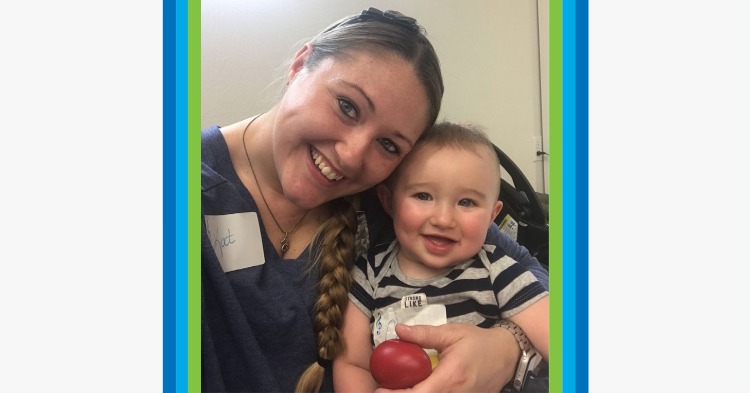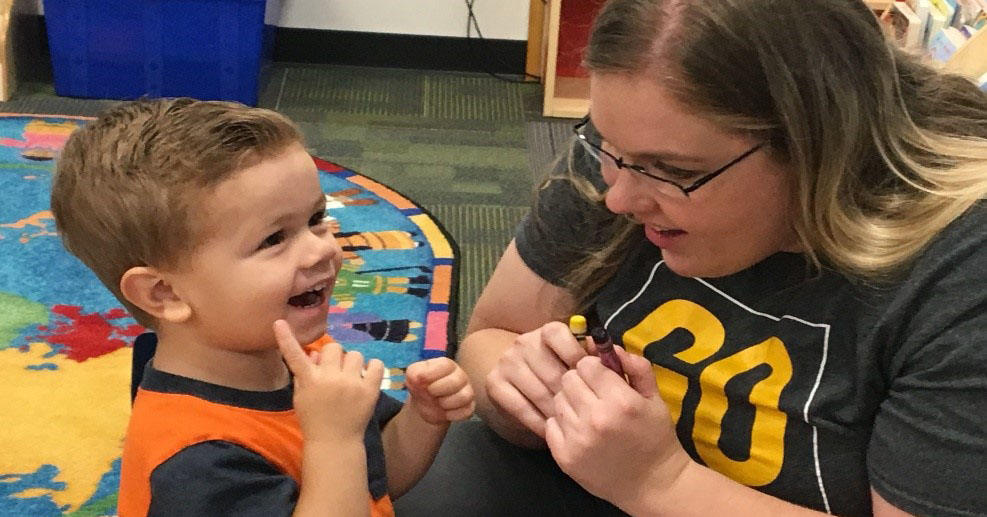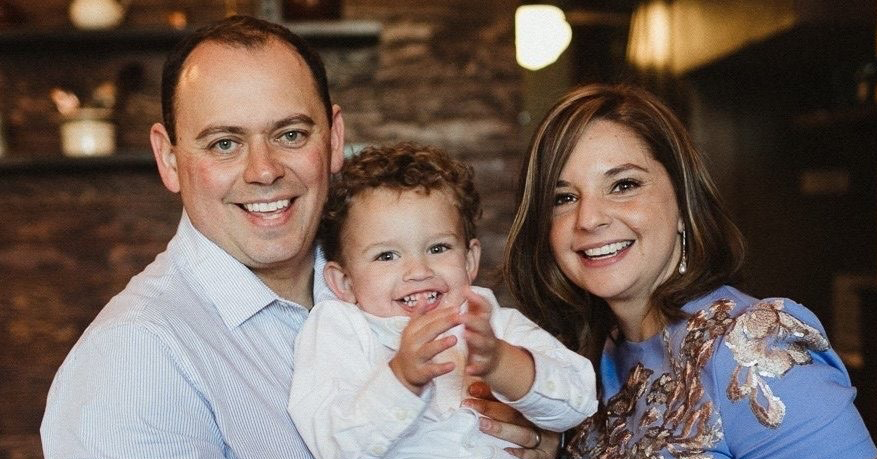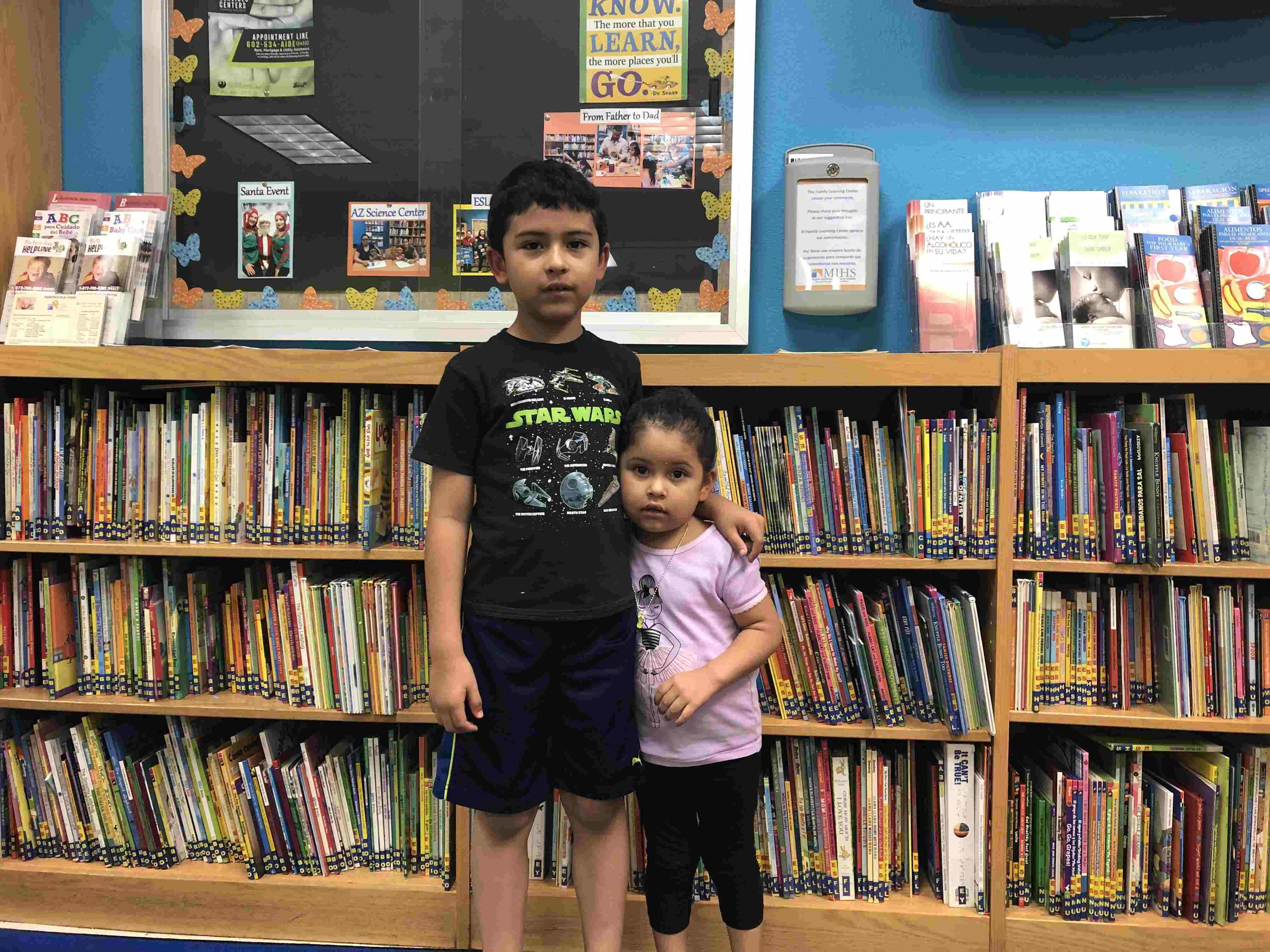The intent of family resources centers is to provide families with the information, services and support they need to help their children achieve their fullest potential. Family resource centers are community hubs that provide flexible, family-focused and culturally-responsive information, resources, referrals to services and parenting activities covering a wide range of topics, connecting families to the information, resources and services they need to support their child’s optimal health and development.
Regions funding this strategyFeatured Stories
Funding Plan Highlights
La Paz/Mohave
The La Paz/Mohave Regional Partnership Council has taken a collective impact approach to system building. Establishing, developing and maintaining community relationships is time intensive and requires a “big picture” outlook to create systemic change for the betterment of children and families in the region. The goal is for First Things First to be seen as a community partner and to create mutually beneficial relationships with other organizations in order to further our impact.
Using a collective impact approach, the regional director is convening community partners to spur creation of a Lake Havasu Community Resource Center without FTF funds. A key partner in this effort is the Arizona State University (ASU) Lake Havasu Community Advisory Group (CAG), made-up of 45 local public figures (including the First Things First regional director and the River Cities United Way CEO/President). The group focuses on initiatives that complement the campus and the community. ASU Lake Havasu CAG has been a leader in looking at community needs and interests and moving through the continuum from low intensity networking through cooperation, coordination and high intensity collaboration where participating organizations share risks and responsibilities to create systemic change in connecting resources and services to the community.
Another key partner in moving the idea of a community resource center from idea to action is the Lake Havasu City mayor. He has created the Lake Havasu Community Resource Coalition made up of agencies and individuals who provide support to the people living in Lake Havasu. As part of this coalition, ASU Lake Havasu and CAG are examining the need for a Lake Havasu Resource database that could potentially be linked to a family resource center. ASU has created one student position and two internships as part of this work with the idea that this collaboration can benefit the Lake Havasu Community Resource Coalition and provide students with professional development opportunities and connect them to Lake Havasu City.
River Cities United Way has also become involved with this work and is identifying potential community partnerships to collaborate and to aggregate data and potential state and federal grant opportunities that would complement the work. In addition, the AHCCCS health plan, Care1st/WellCare, has been a part of these community discussions to determine their level of financial support to the community resource center. The local hospital has also entered into these conversations to decide if a community resource center would complement the role of the hospital in Lake Havasu City.
Maricopa Regions
The Family Resource Network, a collaboration initiated and financially supported by the First Things First regional councils in Maricopa County, is composed of more than 40 family resource centers. The network has approved a governance plan, implemented a new marketing campaign, updated their website and is establishing Parent Advisory Councils to increase parent engagement and leadership within each center. An assessment of the collaboration of the network is being conducted. In addition, a long-term sustainability plan is in development for the network. Grantees face challenges in tracking program data, so planning for a shared data system continues to be a priority.
Northwest Maricopa
The regional partnership council supports the Glendale Strong Family Network, which is composed of the City of Glendale, social service organizations, the Glendale School District, the Arizona Department of Health Services and the Arizona Department of Child Safety (DCS). This network targets a specific ZIP code in Glendale (85301) due to the high rate of removals in the geographic area, which bring a consortium of providers and services to support families. The Neglect Analysis Report from the Morrison Institute showed that there were 2,153 removals between 2013 and 2015. The goal is to reduce DCS removals by 10 percent by 2020. The main objective is to educate, engage and develop family leaders in the Glendale 85301 area. The network includes FTF regional partnership council representation and has been effective in planning and addressing the needs of families in the geographic area in conjunction with the implementation of the Family Resource Centers Strategy, which brings many service providers to one location, making them easily accessible for families.
Southwest Maricopa
The regional partnership council’s Family Resource Centers (FRC) Strategy continues to be a success in the region. There are currently four separate FRCs within the region in partnership with two school districts and two local governments. The locations offer families access to resources and services in close proximity to where they live. The four areas served include Gila Bend, the Pendergast School District boundaries, the tri-city communities of Avondale, Goodyear and Tolleson, and the Buckeye School District boundaries including the areas of Rainbow Valley, Arlington, Palo Verde and Tonopah.
These partnerships offer the regional partnership council the unique opportunity to leverage resources to reach more families with young children. FRCs operate as community hubs bringing together many partners that offer a range of support services and opportunities for families within each community. The four sites coordinate services with other First Things First grant-funded programs as well as community partners to eliminate duplication of efforts in the region. FRCs have become a signature program for the region and the regional council takes great pride in being part of such successful investments.
Find more details about strategies related to Family Support in the FTF Strategy Toolkit.






